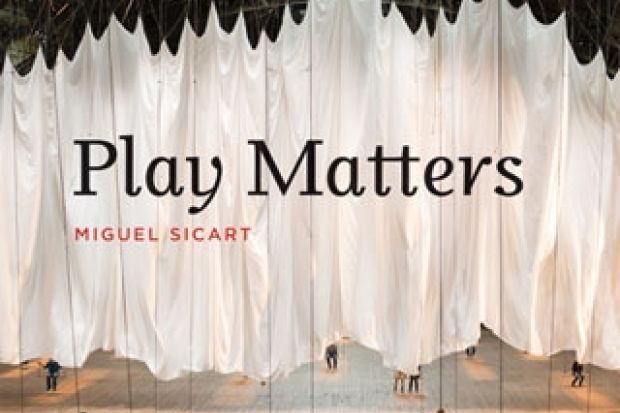We have come a long way, technologically and culturally, in our studies of contemporary culture from the pioneering frontiers of Johan Huizinga’s 1938 book Homo Ludens, namechecked alongside a multitude of other texts in the fascinating bibliography of this book, the latest in MIT Press’ pithy, novel and creative Playful Thinking series. Miguel Sicart’s sources range from Theodor Adorno through Mikhail Bakhtin, Walter Benjamin, Guy Debord and Erving Goffman and on to Paulo Freire, Bruno Latour and Jean-Paul Sartre, all of whom have written with wit, spark and insight about play, sport and culture. A third of the book consists of references and sources; the text itself is only 100 pages (with an extraneous website, too) but the whole thing is well worth reading. The subtitle of Huizinga’s book was A Study of the Play Element in Culture – by which he meant explicitly Western culture – and that is what we get in Sicart’s provocative essay. As Sicart asserts, he is rewriting Homo Ludens, updated for the computer age. We are all post-Huizingan now.
The book (and the series) takes video games as its main empirical element. Sicart has written about ethics in computer games and game studies before, and that is his educational background. Although there is plenty for scholars of game studies to gain from reading this book, it comes from a wider milieu, and grew out of a design course in playful interaction Sicart taught in Copenhagen. A new aesthetics of play, a materialism of play if you like, keeps poking through here in his playful explorations into play and games, which he sees self-consciously as a “nonformalist aesthetics of play, inspired by contemporary art theories”, such as those of Nicolas Bourriaud.
What used to be the sociology of sport and games has undergone an international transformation. It is now frequently labelled physical cultural studies, or PCS for short, and Sicart’s book fits neatly into this rethinking. There are some lovely insights throughout, especially in the area of sport and play. They can almost be read as new aphorisms: take “UEFA is a famously conservative institution that tries to keep the practice of professional soccer as low tech as possible”, which would not be out of place on one of Philosophy Football’s wonderful T-shirts. Sicart has also, under the rubric of the politics of play, managed to weave observations on both of Diego Maradona’s goals in Argentina’s World Cup win over England in Mexico in 1986 into comments on the Arab Spring and Occupy movements and Guy Debord’s Situationist International, all the while continuing the theme of play.
The only drawback to this recommended work is its author’s libertarian optimism. In the wake of the global financial crisis, we live less in a world of Homo ludens than in what Giorgio Agamben calls Homo sacer and the “bare life” that comes with it.
Play Matters
By Miguel Sicart
MIT Press, 176pp, £13.95
ISBN 97802620922
Published 3 October 2014





